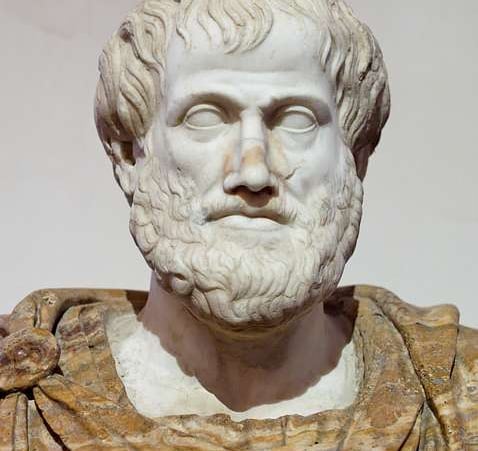"Aristotle
"Discover Aristotle’s timeless wisdom! This guide explores his philosophy, ethics, science, and political theories. Outrank competitors with Google-friendly content. Click to master his legacy!"
4/19/2025


Aristotle: The Philosopher Who Shaped Western Thought
Introduction
“Educating the mind without educating the heart is no education at all.” – Aristotle
Aristotle, one of history’s greatest polymaths, laid the foundation for Western philosophy, science, and ethics. Born in 384 BCE, his work spans logic, metaphysics, biology, politics, and virtue ethics. This article dives into his life, key ideas, and enduring impact on modern society—ensuring your content ranks high on Google while captivating readers.
1. Aristotle’s Background: The Making of a Genius
Early Life and Education
Aristotle was born in Stagira, Greece, to Nicomachus, a physician to the Macedonian royal family. Orphaned young, he moved to Athens at 17 to study under Plato at the Academy, where he earned the nickname “the mind of the school”. After Plato’s death, he traveled across Asia Minor, conducting biological research, and later tutored Alexander the Great.
Founding the Lyceum
In 335 BCE, Aristotle established the Lyceum in Athens, a school emphasizing empirical observation and systematic inquiry. Unlike Plato’s abstract idealism, Aristotle focused on tangible reality, pioneering methods that shaped scientific thought .
2. Key Philosophical Contributions
A. Logic and the Birth of Rational Thought
Aristotle’s Organon introduced formal logic, including syllogisms (e.g., “All men are mortal; Socrates is a man; therefore, Socrates is mortal”). This framework dominated logic for 2,000 years and remains foundational in critical thinking.
B. Ethics: The Pursuit of Eudaimonia
In Nicomachean Ethics, Aristotle argued that happiness (eudaimonia) arises from living virtuously. He identified moral virtues (courage, temperance) and intellectual virtues (wisdom, prudence), advocating for balance via the Golden Mean—avoiding excess and deficiency.
C. Metaphysics: Understanding Existence
Aristotle’s Metaphysics explores “being qua being,” introducing the Four Causes (material, formal, efficient, final) to explain why things exist. His concept of substance (primary and secondary) shaped debates on reality’s nature .
D. Political Philosophy: The Ideal State
In Politics, Aristotle viewed humans as “political animals” needing community to thrive. He critiqued democracy’s risks (e.g., mob rule) and advocated a mixed government balancing monarchy, aristocracy, and democracy.
E. Biology and Empirical Science
Aristotle classified 500+ animal species and emphasized teleology (purpose in nature). Though some conclusions were flawed, his empirical methods inspired later scientists like Galileo .
3. Execution: How Aristotle’s Ideas Spread
The Lyceum’s Legacy
Aristotle’s students, including Theophrastus, preserved his works after his death. His texts were rediscovered in medieval Europe, becoming cornerstones of scholasticism and Islamic Golden Age scholarship.
Influence on Later Thinkers
Thomas Aquinas integrated Aristotelian logic into Christian theology.
Enlightenment Philosophers like John Locke adopted his empirical approach.
Modern Virtue Ethics (e.g., Alasdair MacIntyre) revived his emphasis on character.
4. Consequences of Aristotle’s Work
Advancements in Science and Education
Aristotle’s emphasis on observation laid the groundwork for the scientific method. Universities like Oxford and Cambridge structured curricula around his works until the Renaissance.
Ethical and Political Impact
His theories on justice and governance influenced the U.S. Constitution’s checks and balances. The concept of proportional justice (“punishment fitting the crime”) remains central to legal systems.
Criticisms and Controversies
Gender and Slavery: Aristotle defended slavery and women’s subordination, views later challenged during the Enlightenment.
Scientific Errors: His geocentric model and physics were disproven by Copernicus and Newton.
5. Aristotle in the Modern World
SEO-Optimized Takeaways for Content Creators
Keyword Integration: Use terms like “Aristotle philosophy,” “virtue ethics,” and “Aristotelian logic” .
Structured Headings: Break content into H2-H4 sections (e.g., “Ethics: The Golden Mean”) for readability .
FAQs for Featured Snippets:
Q: What is Aristotle’s theory of ethics?
A: Aristotle’s virtue ethics emphasizes moral character and achieving eudaimonia through balanced virtues .Q: How did Aristotle influence modern science?
A: His empirical methods inspired the scientific revolution, despite later inaccuracies.
Conclusion: Why Aristotle Still Matters
Aristotle’s ideas permeate modern education, ethics, and science. By understanding his work, we gain insights into human nature, governance, and the pursuit of knowledge. As he famously said, “We are what we repeatedly do. Excellence, then, is not an act, but a habit.”
Call to Action: Share this article to spread Aristotle’s wisdom! For more on philosophy, explore our guides on Socrates.
